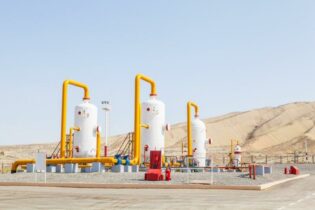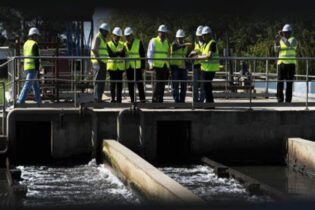As part of its PepsiCo Positive transformation – PepsiCo aims to replenish more water than the company uses and supports United Nations’ Sustainable Development Goals by becoming Net Water Positive by 2030.
The Sustainable Development Goals were adopted by the United Nations as a call to action for people worldwide to address five critical areas of importance by 2030: people, planet, prosperity, peace, and partnership. The goals are set to ensure that people across the globe live with safely managed drinking water, safely managed sanitation, and basic hygiene services, particularly in rural areas and the least developed countries. According to the UN, the current rates of progress need to increase four times the current rate to reach the global target of universal access by 2030. Bridgitte Backman, Vice President of Corporate Affairs at PepsiCo SSA said, “PepsiCo recognises water as a human right, and therefore it strives to have a positive water impact – this means that we aim to reduce absolute water use and replenish back into the local watershed more than 100% of the water used.” “In addition, we aim to achieve this by replenishing watersheds where we operate and collaborating with others to help close the gap on water security,” Backman said. To achieve this goal the company aims to use three guiding pillars within PepsiCo Positive. One of the ways the company is looking to achieve these targets is by monitoring the four ways we use water. “We are looking to improve our agricultural water use efficiency – working with our suppliers and agricultural partners to improve water-use efficiency in our supply chain in high-water-risk areas.”A technique that will be implemented in Limpopo, an area of growing water scarcity. The technique can be applied to existing pivot irrigation infrastructure and can improve farmers’ water use efficiency and watershed health.
“The Positive Agriculture Outcomes (PAO) Fund where PepsiCo will test new irrigation techniques that can assist potato farmers with saving water, improving crop yields, and lowering their costs. This includes the reuse of water from corn washing at our snacks sites, pasteurizer and cooling water recovery at our beverage sites, and wastewater for irrigation at the Upington site,” Backman said. In 2018, PepsiCo implemented the Alliance for Water Stewardship (AWS) with the aim to adopt AWS’s globally recognised best practice in water stewardship across its high-water-risk facilities. “Currently, 11 of our production facilities in high-water-risk areas in South Africa are in the process of adopting the Alliance for Water Stewardship Standard, with one having fully adopted it in 2020,” Backman added. “In terms of replenishment, during 2018 when Day Zero was looming in Cape Town, we became a founding member of the Greater Cape Town Water Fund. This investment supports nature-based solutions led by The Nature Conservancy, such as the removal of water-thirsty invasive alien plant species in the greater Cape Town watershed. In 2021, we replenished close to 1.5 billion litres of water in the Western Cape water system through the removal of alien species of vegetation,” Backman further stated. PepsiCo is committed to providing access to safe water to communities, specifically those in which it operates. Funded by the PepsiCo Foundation, R6 million was invested in four individual projects aimed at providing safe water access.- In partnership with the National Business Initiative, the company recently handed over 15 handwashing units and 35-foot operated standpipes to a community in Aliwal North.
- Working with World World Wildlife Fund (WWF) SA, it aims to provide 3 600 people in Matatiele, Eastern Cape with improved safe water access and hygiene practices.
- 65 000 people have received improved sanitation services in the Bloekombos and Wallacedene communities in the Western Cape through its partnership with SOS CT.
- The project with the Water Research Commission in Ga-Moela, Limpopo has benefitted over 750 people through the provision of improved sanitation.







